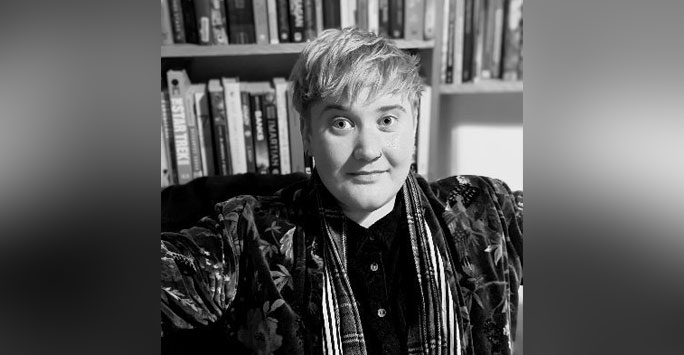
Dr Hannah Little is Lecturer in Communication and Media in the School of the Arts, and in this 'Researcher in Focus' blog and podcast we learn all about her work exploring how scientific information is explained and understood, and the different ways we can become more effective communicators.
Listen to Dr Little talk about her work in more detail in our 'researcher in focus' podcast.
Hannah writes:
My research is broadly about the communication of science and technology. I use methods from cultural evolution, linguistics and cognitive science to look at how scientific information is transmitted, understood and perceived, and how that affects trust, attitudes and behaviours.
Before moving to Liverpool to join the Department of Communication and Media, I was a Senior Lecturer in Science Communication at UWE Bristol for 4 years, and a Data Fellow at the Southwest Creative Technology Network, but I haven’t always worked in science communication. I did my PhD at the Artificial Intelligence Lab at the Vrije Universiteit Brussel in Belgium, and my postdoc at the Max Planck Institute for Psycholinguistics in the Netherlands, both looking at evolutionary linguistics and how structures in language came about. However, I still use methods from the cultural evolution of language in my current work on science communication.
My current projects focus on the cognitive aspects of storytelling for science communication, communicating about scientific method and uncertainty, and communicating science with culture.
Science storytelling
Some of my recent work looks at the use of storytelling for science communication. Storytelling is one of the oldest, most powerful and universal tools that humans use to understand the world around us.
My work, funded by the British Academy, has been looking at how stories are used in science communication and how stories are transmitted with more accurately when they use certain “biases”. For instance, information is remembered more faithfully when it is social or survival information, negative emotional information, or counterintuitive information.
It might be tempting to make science communication take advantage of these biases. However, my work has found that the cognitive biases that make information more memorable might sometimes act against objectives that science communicators have. For example, using cognitive biases might make stories seem more sensational which could lead to a loss of audience trust, or using negative emotional information in stories might create fear and anxiety that may create problems for engaging audiences or raising aspirations. My ongoing work is exploring the effectiveness and the ethics of using different cognitive biases or other tactics in science communication.
Communicating uncertainty
I’m also working on projects that investigate how knowledge of scientific methods might influence our trust in recommendations from scientists or engineers. I am currently working with Dr Ksenija Dvurecenska in the School of Engineering on a project investigating how awareness of virtual simulations used to test technologies might affect public trust in those technologies.
For instance, new 0-emissions hydrogen-powered aircraft are currently being tested in this way. This project was born when Ksenija approached me at an open science event held at the University and asked me whether, if I knew an aircraft had only been tested in a virtual environment, I would get on that aircraft. I wasn’t sure about that, but we got talking about how trust in technologies can be affected by knowledge of how those technologies are tested and how engineers talk about their confidence in their work.
We are now working on a big collaborative project together, funded by the Royal Society, the British Academy and the Royal Society of Engineering, exploring these questions. I am currently exploring future work that asks similar questions about the methods used in clinical medicine or volcanology and whether knowledge of scientific methods can affect public trust in recommendations to participate in clinical trials or trust expert instruction in the event of disasters such as volcanic eruptions or pandemics.
Communicating with culture
My more practice-based work looks at how audiences can be engaged with science by embedding it in culture or art. This includes cultures such as comedy and science fiction. I have often taken part in science comedy events on stage and am currently writing a book on how science fiction has influenced linguistic science, and how speculative fiction can be used as a research tool that gives us access to outsider perspectives.
The work of using science fiction as a vehicle to explore questions about language and communication has led to me working as part of the UK SETI Research Network and the SETI Post Detection Hub hosted at the University of St Andrews who explore issues of how humanity can respond responsibly should we make contact with extra-terrestrial intelligence.